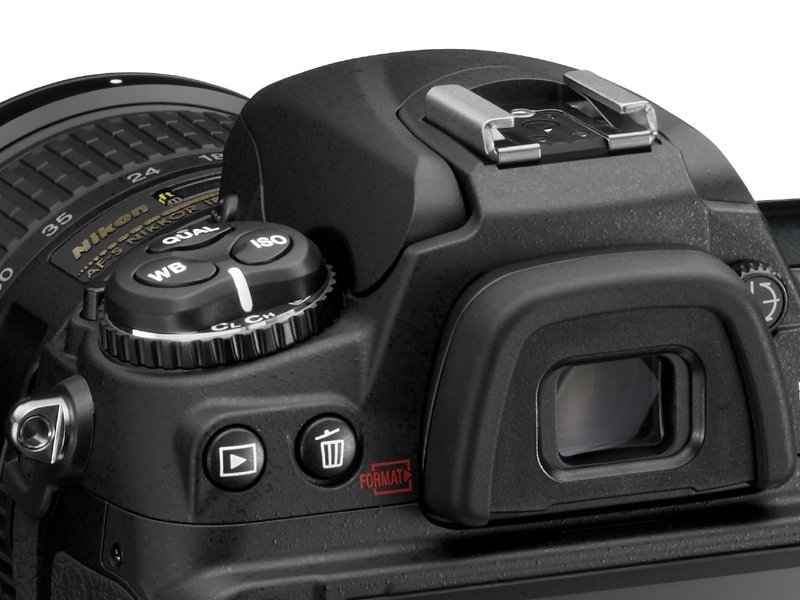Owning a camera doesn't make you a criminal
Police and security guards can't force you to delete your snaps

When George Bush pronounced the war on terrorism as the "war on tourism", we thought it was because he was an idiot.
Maybe not, because it seems that tourism and terrorism are the same thing - or at least, they are to some police officers. How else can we explain the harassment of tourists who took photographs of a bus station?
Sadly, Klaus Matzka's experience was by no means unusual. Photographers of all kinds, from amateur snappers to pros, are finding that cameras attract all kinds of heavy-handed attention.
Snap a police officer at a peaceful demo and you could find yourself nicked under Section 76 of the Counter-Terrorism Act 2008; snap anything else and you could find yourself accused of terrorism and ordered to delete your photos.
Part of the problem is overzealous people in uniform, whether they're security guards or serving police officers. The Metropolitan Police's crazed anti-terrorism adverts (PDF), which brand photographers as potential bombers don't exactly help. But there's also a problem with the law.
The idea that Section 76 of the Counter-Terrorism Act makes photographing the police illegal is pure fantasy. It doesn't mention photos at all. Rather, it says that it's illegal to gather or publish information about the police or armed forces that is "likely to be useful" to a mad bomber, foreign spy or Osama Bin Laden.
Misinterpretation of the Act
Sign up for breaking news, reviews, opinion, top tech deals, and more.
With pretty much everything in the world linked to terrorism these days - Icelandic banks' assets were frozen under anti-terrorism legislation, while anti-terrorism surveillance powers have also been used to crack down on such threats to life and liberty as dog crap and fly-tippers - then it's easy to see how that phrase can be misinterpreted, either by accident or by design.
Here's an example. Would footage of a policeman assaulting an innocent civilian who later died of internal bleeding be useful to a terrorist? How about footage of a policeman in body armour whacking a woman, his ID badges covered up so nobody can report him?
Of course they would. Circulation of such footage undermines people's respect for the police, makes us wonder if some of them are just thugs with badges, and makes the work of the good cops - who are, of course, the majority - much harder. They're brilliant recruitment tools for militants, too.
That doesn't make the photographs or video clips illegal, though. If you're hanging around military bases with a zoom lens, then of course you're going to get nicked - but irrespective of what uniformed goons might tell you, it's legal to take photos of pretty much anything else provided you're not breaking any other laws in the process.
Deleting photos
Forcing you to delete your snaps, on the other hand, is not legal - because if you're committing a crime, then your photos are evidence. Think about that for a second. If someone orders you to delete your shots, they're saying: "I have caught you committing a crime and I am ordering you to delete all the evidence."
Security guards don't have the powers to search you, and they can't legally delete your photos. The police can't delete your photos, either, unless they get a court order.
If you're hanging around RAF airfields with a zoom lens or you're on privately owned property then there are laws stopping you from taking pictures - but in most circumstances there's no reason why you can't photograph whatever you want.
Don't believe us? Ask the government. Here's Shahid Malik, Parliamentary Under-Secretary of State for the Home Department, on 1 April 2009: "Police officers have the discretion to ask people not to take photographs for public safety or security reasons, but the taking of photographs in a public place is not subject to any rule or statute. There are no legal restrictions on photography in a public place, and there is no presumption of privacy for individuals in a public place."
As Malik told Parliament: "Our counter-terrorism laws are not designed or intended to stop people taking photographs. That is simply not their aim. People have the right to take photographs in public places for legitimate reasons and we will do everything we can to uphold that right." Mr Malik says that police forces around the land are being issued new guidance telling them just that. Here's hoping they actually read it.

Contributor
Writer, broadcaster, musician and kitchen gadget obsessive Carrie Marshall has been writing about tech since 1998, contributing sage advice and odd opinions to all kinds of magazines and websites as well as writing more than twenty books. Her latest, a love letter to music titled Small Town Joy, is on sale now. She is the singer in spectacularly obscure Glaswegian rock band Unquiet Mind.